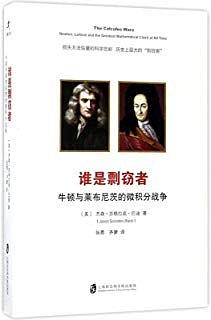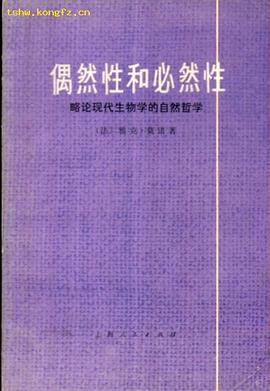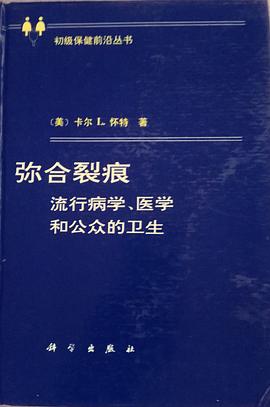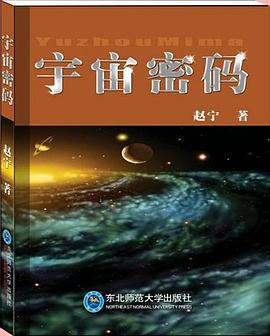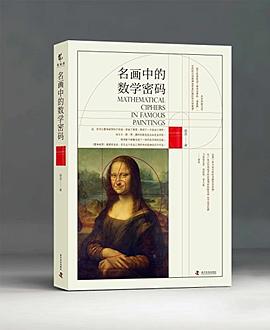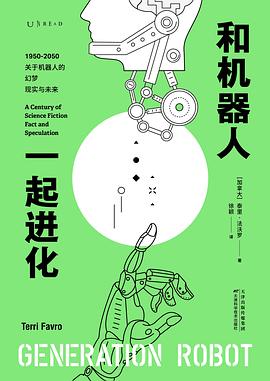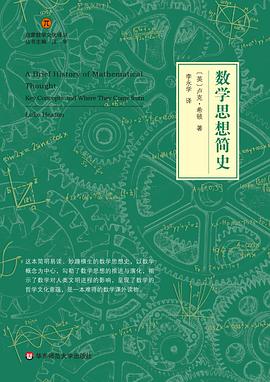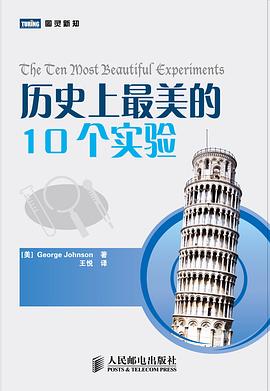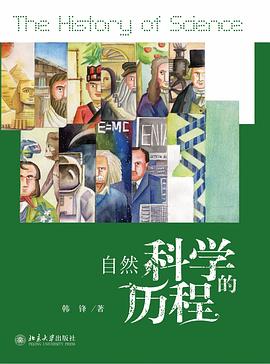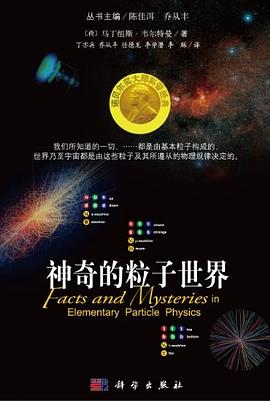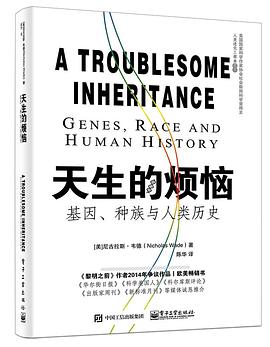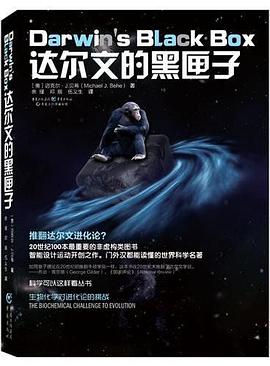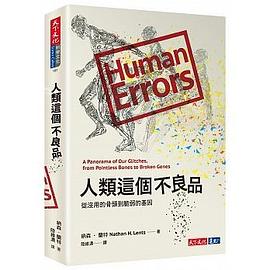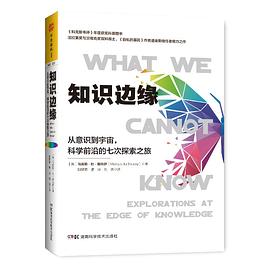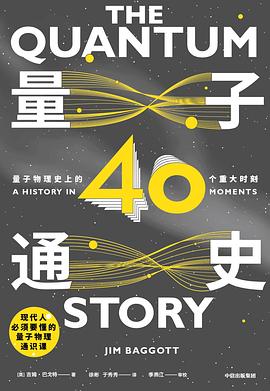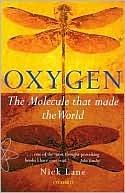

具体描述
Drawing on a grand evolutionary canvas, Oxygen offers fresh perspectives on life and death, explaining modern killer diseases, why we age, and what we can do about it. Advancing revelatory new ideas, following chains of evidence, the book ranges through many disciplines, from environmental sciences to molecular medicine. The result is a captivating vision of contemporary science and a humane synthesis of our place in nature. This remarkable book will redefine the way we think about the world.
作者简介
Dr Nick Lane is a British biochemist and writer. He was awarded the first Provost's Venture Research Prize in the Department of Genetics, Evolution and Environment at University College London, where he is now a Reader in Evolutionary Biochemistry. Dr Lane’s research deals with evolutionary biochemistry and bioenergetics, focusing on the origin of life and the evolution of complex cells. Dr Lane was a founding member of the UCL Consortium for Mitochondrial Research, and is leading the UCL Research Frontiers Origins of Life programme. He was awarded the 2011 BMC Research Award for Genetics, Genomics, Bioinformatics and Evolution, and the 2015 Biochemical Society Award for his sustained and diverse contribution to the molecular life sciences and the public understanding of science.
Nick Lane is the author of three acclaimed books on evolutionary biochemistry, which have sold more than 100,000 copies worldwide, and have been translated into 20 languages.
Nick's first book, Oxygen: The Molecule that Made the World (OUP, 2002) is a sweeping history of the relationship between life and our planet, and the paradoxical ways in which adaptations to oxygen play out in our own lives and deaths. It was selected as one of the Sunday Times Books of the Year for 2002.
His second book, Power, Sex, Suicide: Mitochondria and the Meaning of Life (OUP, 2005) is an exploration of the extraordinary effects that mitochondria have had on the evolution of complex life. It was selected as one of The Economist's Books of the Year for 2005, and shortlisted for the 2006 Royal Society Aventis Science Book Prize and the Times Higher Young Academic Author of the Year Award.
Nick's most recent book, Life Ascending: The Ten Great Inventions of Evolution (Profile/Norton 2009) is a celebration of the inventiveness of life, and of our own ability to read the deep past to reconstruct the history of life on earth. The great inventions are: the origin of life, DNA, photosynthesis, the complex cell, sex, movement, sight, hot blood, consciousness and death. Life Ascending won the 2010 Royal Society Prize for Science Books, and was named a Book of the Year by New Scientist, Nature, the Times and the Independent, the latter describing him as “one of the most exciting science writers of our time.”
Nick's next book, due to be published in 2015 by Norton and Profile, is entitled The Vital Question. Why is life the way it is? It will attack a central problem in biology - why did complex life arise only once in four billion years, and why does all complex life share so many peculiar properties, from sex and speciation to senescence?
Nick was also a co-editor of Life in the Frozen State (CRC Press, 2004), the first major text book on cryobiology in the genomic era.
Peer-reviewed articles by Nick Lane have been published in top international journals, including Nature, Science and Cell, and he has published many features in magazines like New Scientist and Scientific American. He has appeared regularly on TV and radio, and speaks in schools and at literary and science festivals. He also worked for several years in the pharmaceutical industry, ultimately as Strategic Director of Medi Cine, a medical multimedia company based in London, where he was responsible for developing interactive approaches to medical education.
Nick is married to Dr Ana Hidalgo-Simon and lives in London with their two young sons, Eneko and Hugo. He spent many years clinging to rock faces in search of fossils and thrills, but his practical interest in palaeontology is rarely rewarded with more than a devil’s toenail. When not climbing, writing or hunting for wild campsites, he can occasionally be found playing the fiddle in London pubs with the Celtic ensemble Probably Not, or exploring Romanesque churches.
目录信息
读后感
路上读书解读: 1.先问大家一个问题:有一样东西,我们离了它活不了,如果太多了呢就活不成,生命演化要靠它推动,动植物呼吸都离不开它,但是呢,它也能一瞬间引发大火将一切化为灰烬,你猜到它是什么了吗?没错,它就是我们无时无刻不在呼吸的氧气。 第一,氧气如何在40亿年...
评分路上读书解读: 1.先问大家一个问题:有一样东西,我们离了它活不了,如果太多了呢就活不成,生命演化要靠它推动,动植物呼吸都离不开它,但是呢,它也能一瞬间引发大火将一切化为灰烬,你猜到它是什么了吗?没错,它就是我们无时无刻不在呼吸的氧气。 第一,氧气如何在40亿年...
评分路上读书解读: 1.先问大家一个问题:有一样东西,我们离了它活不了,如果太多了呢就活不成,生命演化要靠它推动,动植物呼吸都离不开它,但是呢,它也能一瞬间引发大火将一切化为灰烬,你猜到它是什么了吗?没错,它就是我们无时无刻不在呼吸的氧气。 第一,氧气如何在40亿年...
评分路上读书解读: 1.先问大家一个问题:有一样东西,我们离了它活不了,如果太多了呢就活不成,生命演化要靠它推动,动植物呼吸都离不开它,但是呢,它也能一瞬间引发大火将一切化为灰烬,你猜到它是什么了吗?没错,它就是我们无时无刻不在呼吸的氧气。 第一,氧气如何在40亿年...
评分路上读书解读: 1.先问大家一个问题:有一样东西,我们离了它活不了,如果太多了呢就活不成,生命演化要靠它推动,动植物呼吸都离不开它,但是呢,它也能一瞬间引发大火将一切化为灰烬,你猜到它是什么了吗?没错,它就是我们无时无刻不在呼吸的氧气。 第一,氧气如何在40亿年...
用户评价
《Oxygen》的节奏把握得非常恰当。它不像一些快节奏的商业作品那样,为了追求刺激而牺牲了叙事的深度,也没有过于拖沓冗长的篇幅,让人感到厌倦。作者的叙事节奏,恰似一条蜿蜒的河流,时而舒缓,时而湍急,却始终保持着一种流畅的生命力。它能够让我在享受阅读乐趣的同时,也能有足够的时间去消化和思考。每一次翻页,都充满了期待,却又不会因为节奏太快而感到仓促。
评分在翻阅《Oxygen》的扉页时,一种难以言喻的期待便油然而生。这本书的封面设计简洁而富有深意,没有过多的装饰,只有恰到好处的留白,仿佛预示着一种宁静而深邃的阅读体验。我常常在午后,伴着窗外洒落的阳光,捧起这本书,指尖轻轻拂过封面,想象着里面即将展开的奇妙旅程。它不像那些封面浮夸、内容空洞的书籍,而是像一位沉静的朋友,邀请你去探索那些隐藏在平淡之下的深刻。每一次的阅读,都像是在与作者进行一次心灵的对话,感受着他文字中传递的情感与思考,那些细微之处,往往能触动内心最柔软的地方。这本书带给我的,不仅仅是知识的增长,更是一种精神的洗礼,让我重新审视生活中的点滴,发现那些被忽略的美好。
评分《Oxygen》的书写风格让我印象深刻。它不像很多现代作品那样追求华丽的辞藻和复杂的句式,而是以一种返璞归真的姿态,用最简洁、最朴实的语言,描绘出最真实的情感和最深刻的哲理。这种“少即是多”的写作方式,反而更具力量,它让文字本身拥有了生命,能够直接触及读者的灵魂,引发深刻的共鸣。我曾无数次被作者的某一句独白所打动,那些看似平凡的句子,却蕴含着生命的智慧和岁月的沉淀。它就像一杯清茶,入口微涩,回味甘甜,让人在品味的过程中,逐渐领悟到其中蕴含的深意。我常常在阅读时停下笔来,反复咀嚼那些触动心灵的词句,并试图将它们内化成自己的思考。
评分我非常欣赏《Oxygen》中人物塑造的深度。作者笔下的角色,并非简单的符号或脸谱化的形象,而是有着复杂情感和独特经历的鲜活个体。我能够感受到他们内心的挣扎与成长,理解他们选择背后的原因,甚至会在某些时刻,将自己代入他们的角色,体会他们的痛苦与快乐。这种强烈的代入感,是很多作品难以企及的。我尤其喜欢作者对人物内心世界的挖掘,那些不为人知的秘密、潜藏的情感,都被细腻地展现在读者面前,让我对人性有了更深刻的认识。
评分我特别喜欢《Oxygen》在情节设置上的匠心独运。作者并没有采用那种跌宕起伏、扣人心弦的叙事方式,而是将故事的脉络 woven得如同精美的丝绸,每一根丝线都看似随意,却又巧妙地连接着整个宏大的图景。这种“润物细无声”的叙事风格,反而让我在不知不觉中沉浸其中,仿佛置身于故事的现场,感受着角色的喜怒哀乐,体验着他们所经历的种种。我尤其欣赏作者对人物心理刻画的细腻,那些微小的表情变化、不经意的言语,都仿佛被放大镜般清晰地呈现在读者眼前,让我能够深刻地理解角色的动机和情感。它不是那种一眼就能看到结局的书,而是一种需要细细品味、慢慢咀嚼的佳作,每一次重读,都能发现新的细节,获得新的感悟。
评分在我看来,《Oxygen》是一本能够陪伴我走过很长一段时光的书。它不是那种读完就束之高阁的快餐式读物,而是像一位知心的朋友,可以在不同的心境下,给我不同的启示。每一次重读,都会有新的发现,新的感悟,就如同生活本身一样,永不枯竭。我喜欢它带来的那种宁静而深远的思考,它让我更加珍惜当下,更加热爱生活,也更加理解那些生命中不可或缺的“氧气”。
评分《Oxygen》带给我的阅读乐趣,更多地体现在它引发的思考上。作者并没有直接给予答案,而是通过故事和人物,提出了一系列发人深省的问题,引导读者去思考生命的意义,人性的复杂,以及我们与世界的关系。我喜欢这种“留白”式的写作,它给了读者充分的想象空间,让每个人都能在书中找到属于自己的解读。在阅读过程中,我常常会停下来,对照自己的经历和感悟,进行一番深刻的自我反思。它像一面镜子,映照出我们内心的真实,也让我们更加清晰地认识自己。
评分这本书的结构设计也十分精妙。作者似乎有意将故事分解成不同的片段,然后以一种非线性的方式重新组合,这种独特的叙事结构,反而增加了阅读的趣味性和挑战性。它就像一个巨大的拼图,需要读者自己去发现其中的联系,去还原整个故事的全貌。这种探索的过程,本身就是一种巨大的乐趣。我喜欢作者在结构上的大胆尝试,它打破了传统的叙事模式,带来了全新的阅读体验。
评分这本书在构建世界观方面做得非常出色。作者笔下的世界,既有我们熟悉的现实,又融入了许多超乎想象的元素,这种奇幻与现实的完美结合,创造出一个既真实又梦幻的独特空间。我喜欢作者对这个世界的细致描绘,每一个细节都经过精心打磨,从地理环境到社会结构,从历史渊源到文化习俗,都显得那么真实可信,仿佛真的存在于某个遥远的时空。这种沉浸式的体验,让我完全忘记了自己身处何处,而是全身心地投入到这个新世界的探索之中。它不只是一本书,更是一扇通往未知世界的门,打开了,就再也无法停止前进的脚步。
评分《Oxygen》最让我着迷的一点,是它所传达出的那种深刻的人文关怀。作者在字里行间,流露出对普通人命运的关注,对社会现实的思考,以及对美好未来的期盼。他用文字描绘出了那些被遗忘的角落,那些沉默的声音,并试图用自己的方式去理解和温暖他们。我常常被作者笔下那些平凡而伟大的人物所感动,他们的坚韧、他们的善良,都让我看到了人性的光辉。这本书不仅仅是故事,更是一种对生命的敬畏和对爱的赞颂。
评分看看
评分虽然读书不多,但毫无疑问,这是我读过的最好的一本。伟大伟大伟大伟大伟大伟大伟大伟大伟大...
评分以生物化学零基础俩月啃下这本书我容易么我。这人是真不拿读者当外行啊,什么专业名词都往上招呼,头回被一本科普书折磨的死去活来。还想看他后头几本呢,不过得歇会,我先找两本小说看看。
评分路上读书解读: 不是小广告,自从有了路上读书,和外国同事讨论纽约时报畅销书,再也不会语塞。吐血推荐。
评分虽然读书不多,但毫无疑问,这是我读过的最好的一本。伟大伟大伟大伟大伟大伟大伟大伟大伟大...
相关图书
本站所有内容均为互联网搜索引擎提供的公开搜索信息,本站不存储任何数据与内容,任何内容与数据均与本站无关,如有需要请联系相关搜索引擎包括但不限于百度,google,bing,sogou 等
© 2026 book.quotespace.org All Rights Reserved. 小美书屋 版权所有

